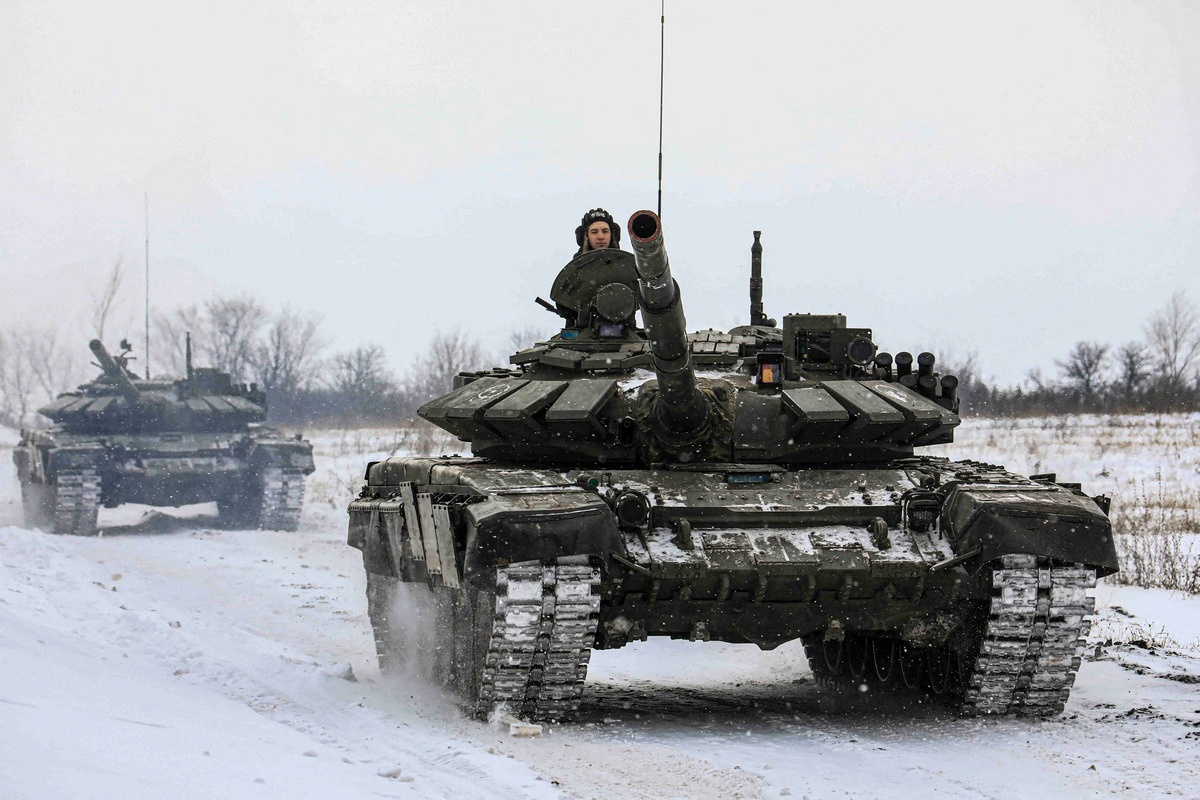- Ministry of Defense, banks have been attacked by a cyber
- Russia says some forces have reconfigured their bases after military build-up near Ukraine
- The West responds with caution and skepticism
KIEV/MOSCOW/WASHINGTON (Reuters) – Ukraine said it suffered a cyber attack on Tuesday, apparently blaming Russia, as Moscow’s comments about a partial troop withdrawal were met with Western skepticism.
US President Joe Biden warned that he would move with allies to respond to the hacking and said a Russian attack was still a possibility.
East-West relations face one of their deepest crises in decades over Ukraine, the post-Cold War impact on the continent, and energy supplies.
Register now to get free unlimited access to Reuters.com
Register
Europe and the United States want Moscow to back off its buildup of more than 150,000 troops near the Ukrainian border, according to US estimates. They suggested arms control and confidence-building steps to defuse the confrontation.
On Tuesday, Russia released footage showing it was returning some troops to their bases after the exercises. Biden said the United States had not verified the move. “Our analysts indicate that they remain in a very dangerous situation,” he said.
Ukraine did not say who it believed was responsible for the cyber attack, but a statement indicated that it was pointing the finger at Russia.
“It is not excluded that the aggressor used tactics of dirty little tricks because his aggressive plans do not work on a large scale,” said the Ukrainian Center for Strategic Communication and Information Security, which is part of the Ministry of Culture.
Users of Ukraine’s Privatbank reported problems with payments and a banking app, while Oshadbank said its systems had slowed.
The Russian Federal Security Service did not immediately respond to a request for comment from Reuters.
“If Russia attacks the United States or our allies with asymmetric means such as disruptive cyber attacks against our companies or critical infrastructure, we are prepared to respond,” Biden said in televised remarks from the White House.
A European diplomat said the hacking was worrisome because a full-fledged military attack on Ukraine would likely be preceded by a cyber attack.
“It could mean that a physical attack is imminent, or it could mean that Russia continues to mess with Ukraine,” the diplomat said, speaking on condition of anonymity.
The cyber attack was characterized by distributed denial of service attacks, when hackers flood a network with unusually large amounts of data traffic to paralyze it. It is difficult to attribute such incidents, but the European diplomat said there is no doubt that Russia is behind them.
“De-escalation meaning”

Diplomatic efforts continued on Tuesday.
Foreign Minister Anthony Blinken told his Russian counterpart Sergei Lavrov during a phone call that there must be a “verifiable, credible and meaningful de-escalation” by Moscow.
The NATO chief welcomed indications from Russia in the past two days that it might be looking for a diplomatic solution, but urged Moscow to show its willingness to act.
“There are indications from Moscow that diplomacy should continue,” NATO Secretary General Jens Stoltenberg told reporters.
He said that Russia often leaves military equipment behind after exercises, which creates the possibility of regrouping forces.
At a joint news conference with German Chancellor Olaf Schulz, Russian President Vladimir Putin only briefly referred to troop movements and did not go into details.
Russia has long denied planning to invade Ukraine, saying it can train troops on its soil as it sees fit. She has been pushing for a set of security guarantees from the West and wants to prevent Kiev from joining NATO at all.
Putin told reporters that Russia would not be satisfied with talk that Ukraine was not ready to join the Western military alliance any time soon and demanded that the issue be resolved now.
“As for the war in Europe … about whether we want it or not? Of course not. That is why we put forward proposals for the negotiation process, the result of which should be an agreement to ensure equal security for all, including our state,” he said.
Russia’s show of force near Ukraine’s border has sparked months of frantic Western diplomacy and threats of severe sanctions if it invades, culminating in mounting warnings in recent days that this could happen at any time.
The Kremlin sought to portray its movements as evidence that Western talk of the war was both false and hysterical.
Foreign Ministry spokeswoman Maria Zakharova said: “February 15, 2022 will go down in history with the failure of Western propaganda for the war. I was humiliated and destroyed without a single shot being fired.”
The Russian Defense Ministry has released footage showing tanks and other armored vehicles being loaded onto flat rail cars. Western military analysts said they need more information to judge the significance of the recent troop movements.
Commercial satellite imagery, taken on Sunday and Monday, showed a flurry of Russian military activity at several locations near Ukraine. Read more
Russian stocks, government bonds and the ruble rose sharply in hopes that the situation would improve, and Ukrainian government bonds rose.
Register now to get free unlimited access to Reuters.com
Register
(Reporting by Maria Tsvetkova, Andrea Shallal and Dmitry Antonov); Additional reporting by Reuters offices. Written by Mark Trevelyan and Costas Petsas; Editing by Angus McSwan, Grant McCall and Rosalba O’Brien
Our criteria: Thomson Reuters Trust Principles.

